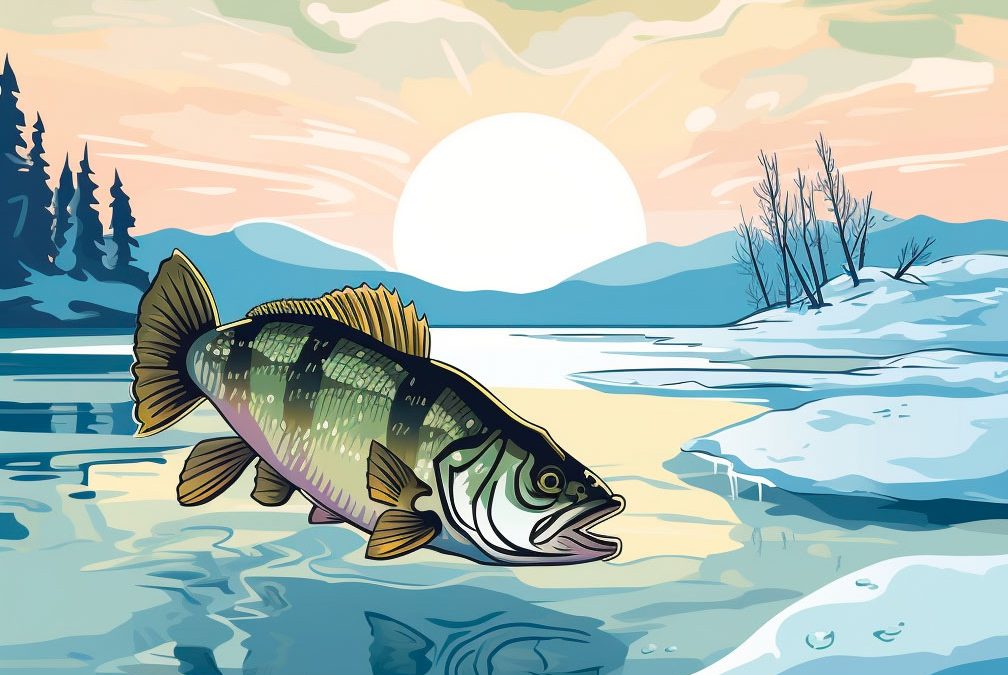Introduction
Bass fishing is a favorite pastime for many anglers, and to be successful, one must understand the behavior of this species of fish. The temperature of the water is a crucial factor that dictates bass behavior and occurrences. So the question arises, what temperature is too cold for bass?
This article aims to explore the relationship between water temperature and bass behavior, what factors affect bass in cold water, the optimal water temperature for bass fishing, and the temperature range that is too cold for bass survival.
Understanding Bass Behavior in Cold Water
Bass is cold-blooded fish whose body temperature depends on the temperature of the surrounding water. So when the water temperature drops, it slows down their metabolism, making them lethargic. During winter, when water temperatures drop down even below 40 degrees, bass enter a state of torpor, where they become inactive and conserve energy.
Moreover, bass has no sweat glands that help regulate their body temperature, so they seek out warmer water temperatures by moving to deeper water or shallow waters with warm sunlight. Bass can also seek shelter in structures like brush piles or sunken logs, where the water temperature remains slightly warmer.
Factors Affecting Bass and Cold Water
Water depth is another crucial factor that influences the behavior of bass in cold water. In shallow water, water temperature fluctuates quickly, and the environment is prone to icing. On the other hand, in deep waters, the water temperature remains constant, so bass remains stable, conserving their energy.
Food supply is another factor that affects bass behavior in cold water. During winter, cold water affects the metabolic rate of bass, it reduces their appetite, and their digestive system slows down. So, bass needs less food to survive during winter. However, they still need to eat to maintain their body weight and condition, so they look for food sources that are easy to catch and require less energy.
Water quality can also affect bass behavior in cold water. When water temperature drops, the solubility of oxygen increases, and cold water can hold more dissolved oxygen than warm water. If there is enough oxygen in the water, bass will thrive in cold conditions. However, if the dissolved oxygen is low, bass may struggle to survive in cold water.
The Coldest Temperature Bass Can Survive
Bass is a hardy fish that can survive under different environmental factors, including cold water. The main objective of bass during winter is to conserve energy and survive until the water warms up. Interestingly, the temperature range that bass can tolerate varies depending on different factors, including their size, age, metabolism, and physical condition.
Research shows that largemouth bass and smallmouth bass can tolerate water temperature as low as 37-39 degrees Fahrenheit. However, this is not the average temperature that bass can thrive in. The optimal temperature range for bass to survive and maintain their normal behavior is between 50-80 degree Fahrenheit, depending on the season.
Optimal Water Temperature for Bass Fishing
The optimal water temperature for bass fishing varies depending on the season. In spring and fall, the water temperature is between 50 and 65 degrees Fahrenheit, which is the best time to catch bass. This is because the water temperature is ideal for bass to move up into shallow water to look for prey and spawn.
In the summer, when the water temperature rises above 80 degrees Fahrenheit, bass becomes sluggish and inactive, making fishing difficult. However, if the water depth is considerable, the water temperature remains cooler, so bass may remain active despite the high temperature.
In winter, when the water temperature drops below 50 degrees Fahrenheit, the challenge lies in catching bass. The slow metabolism and low appetite of bass make it difficult to catch them. Bass can be caught during winter by using slow-moving baits or lures that mimic their natural prey.
What Temperature Is Too Cold for Bass Fishing?
The temperature range that is too cold for bass to survive depends on several factors. Some of the signs that indicate it’s too cold for bass survival include the following:
- Ice cover: When the water temperature gets too cold, the water may freeze up completely and form ice cover. This can be detrimental to bass since oxygen diffusion from the air into the water is limited, making it challenging for bass to breathe.
- Sluggish behavior: As the water temperature drops, bass becomes inactive and sluggish, conserving their energy. They become less reactive to lures or baits, making it extremely difficult to catch them.
- Staying Deep: During winter, bass moves to deeper water because the water temperature remains constant. If the water temperature drops below the temperature bass can tolerate, it becomes challenging for them to swim back up again.
Conclusion
Water temperature is a crucial factor when it comes to catching bass. Understanding bass behavior in cold water, factors that affect bass in cold water, the optimal water temperature for bass fishing, and the temperature range that is too cold for bass survival is key to successful bass fishing.
Bass can survive in cold temperatures as long as there is enough oxygen in the water and the temperature drop is gradual. However, when the water temperature drops to a certain level, it affects bass survival, causing them to become inactive or even die. It is essential to know the temperature range that is ideal for bass survival to ensure their preservation and conservation.

